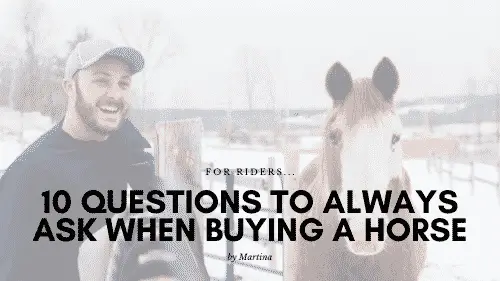I have some really exciting news. I am currently in the process of buying a horse!
Yes, I asked so many questions before buying Rudy. But today I wanted to capitalize on the opportunity, and tell you a little bit about the questions I’ve been asking when I’ve been going to meet horses for the first time.
There are obvious questions you need to ask when you’re looking for a horse. Things like their age, lineage and experience are definitely things you want to know.
And if you REALLY want the goods, we have the best option for you. Our very own step-by-step guide. Videos, photos, write up. We guarantee you will gain a ton of knowledge, and expertise through our online How to Buy Your First Horse program.
But I wanted to share with you a slightly different list of questions. These are the kind of things you might forget to ask in the excitement of the moment, or maybe ones you haven’t thought to ask before.
So let’s get into it!
Health Questions to Ask When Buying a Horse
The health of your future horse should be a critical concern for you. So, in addition to asking generally about their health, I would recommend asking three more health-related questions.
Has he or she been vetted recently?
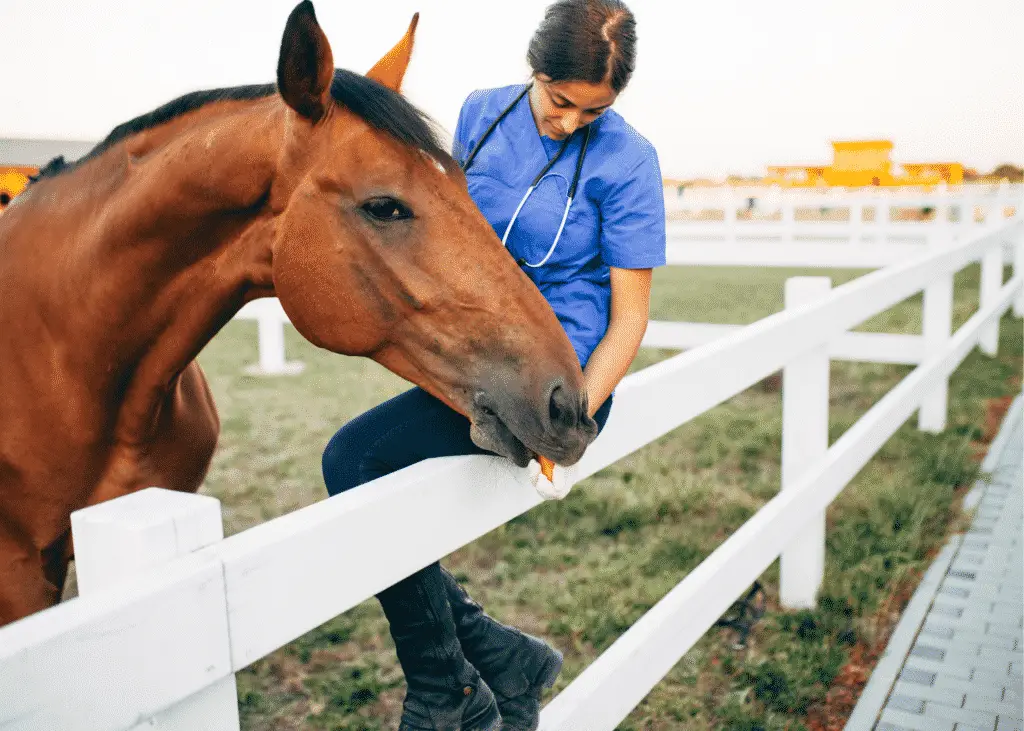
This is a good opener question to find out about your could-be horse’s health.
If they have been vetted recently, you can easily ask about the results of the check. If they haven’t, it could mean one of two things:
- The good interpretation is that maybe they’re really healthy, and haven’t had any issues!
- Or, on the other side, the bad interpretation is that it may be an indicator that they haven’t been taken care of very diligently – usually horses should be seen a few times a year just for routine vaccinations and checks.
Has he or she had any soundness issues or colic/ulcers?
Asking about a horse’s soundness doesn’t refer to the literal sound they make – it’s really just the way of asking if they are in good condition. It involves assessing the horse’s head, neck and back, legs and hooves for any possible health issues or lameness.
Colic is more specific, and it refers to stomach pain in horses. Colic is generally a symptom, as to being a problem in itself. Colic arises from lots of conditions, which could include ulcers or something else to do with the horse’s gastrointestinal tract.
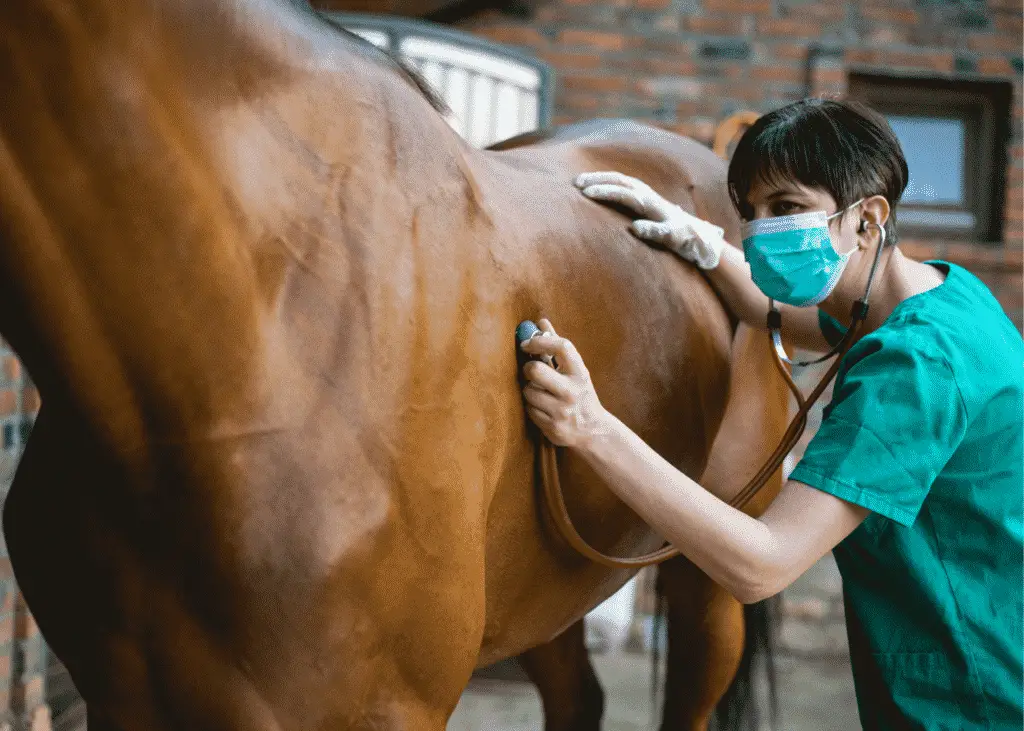
Has he or she ever been on any meds or calming supplements?
Now the answer to this can be a red flag, so it’s really important to ask.
Unfortunately there is a somewhat common practice of drugging horses when prospective buyers come to meet them. This is to control their temperament, and make them seem to have a more stable disposition.
I would definitely ask about whether anything’s been used to calm the horse – but also get an independent vet check to verify.
As for meds and other types of supplements, there are lots of reasons horses might be on them. It’s just important for you to know that, because it might mean they’re not suited for certain types of work, or that you will need to factor in the cost of medical care.
Disposition Questions to Ask When Buying a Horse
So now we need to talk about something huge: your future horse’s disposition.
Now, I love a feisty little guy as much as anyone else. Hanging out with a horse with a spunky personality absolutely makes my day! But it’s important to know about the horse’s disposition before you commit to a purchase. Some dispositions just won’t suit some riding or life styles, and you really need to know that in advance.
So here are the questions I would ask:
How are they in the paddock with other horses? Are they dominant with other horses? Anything to note about keeping him or her?
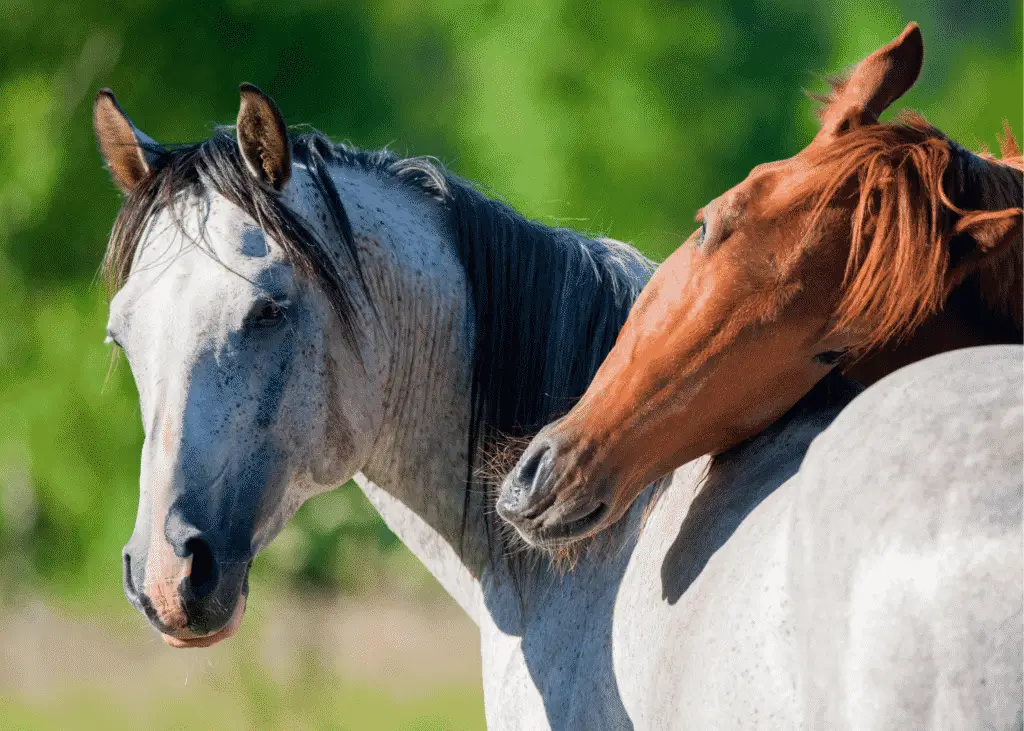
These questions are absolutely vital if you own other horses – but it will still be useful even if you don’t. Because after all, if your horse is boarding, they’ll definitely interact with other horses.
Even if they live alone, you’ll probably take them to competitions, or out trail riding – they won’t avoid other horses forever!
Is he or she okay to be turned out? Is he or she okay being caught from the field?
This is what I would call a ‘good to know’ kind of a question.
Generally these are the kinds of things that change with training – while a horse might not respond perfectly initially, over time you can usually correct any bad behaviours. But it’s good to know what you’re signing up for in advance, so that you can prepare yourself!
Is he or she usually the same on and off property?
Again, I would say this is a good to know question when buying a horse.
But some horses do have problems with anxiety, and in particular I’ve found that new settings can bring out behaviour you don’t see in a familiar environment.
Bear in mind as well that until your horse has settled in, for them their new home will be ‘off property’. You’ll want to be prepared for any adjustment issues that might come up.
Any buck/bolt/spook?
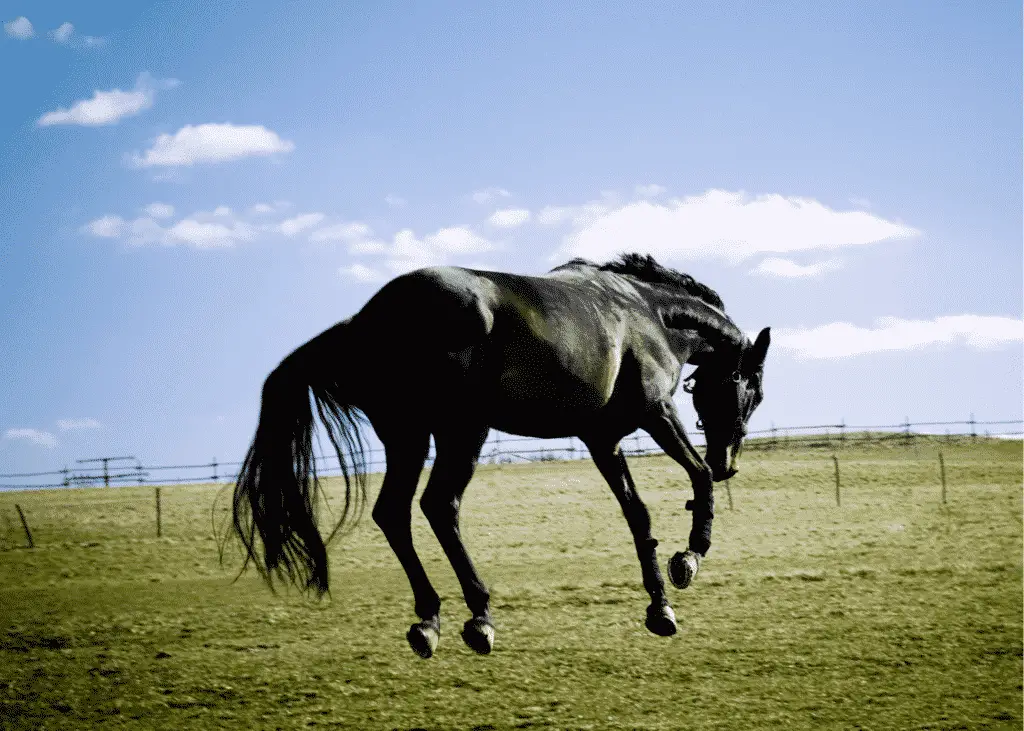
Knowing whether the horse you’re buying is prone to bucking, bolting or spooking is as much a safety concern as anything else.
If there are certain things that cause them to spook, you have a right to know and be aware of them. If you don’t, you and the horse could come into harm down the line.
If you’re buying a horse and you do find out they’re prone to spooking, I have a guide you can read on how to stop a bolting horse! That could be of help if you do go ahead with the purchase.
Feeding and Equipment Questions to Ask When Buying a Horse
What kind of feed are they on? Anything special they require, or any supplements?
Depending on where you live and the age of your horse, they may be on a more complex diet than just grass and hay.
If green grass isn’t available year-round, they may be on a diet supplemented with grain and Vitamin-E. Similarly if they’re getting older, they might be on horse joint supplements.
Ultimately you can feed your own horse whatever you like. But it’s generally recommended that if you’re going to change their feed, you do it slowly, by mixing in your intended new feed with what they’re used to. This should give them time to adjust.
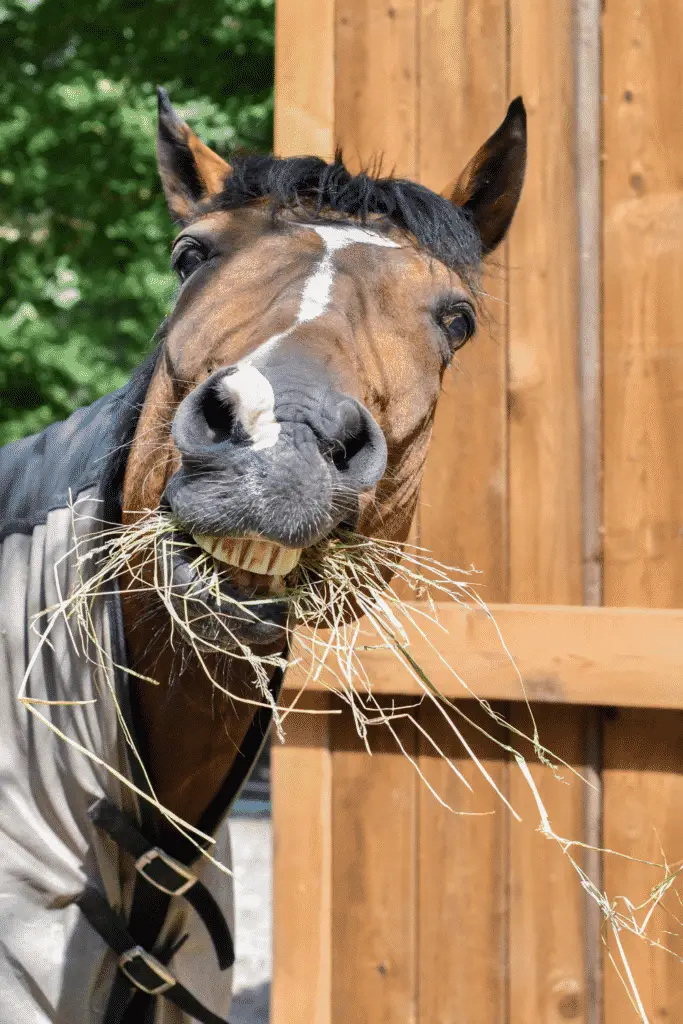
And hey, chances are the person you’re buying a horse from has good insight about what diet works for them – so it’s good to at least find out what they’ve been doing!
Any special bit that you use with him or her?
Before we get into this, if you’re not familiar with the different types of bits, here’s a good intro!
Basically what you need to know is that the bit they’ve been using is what they’ll be most comfortable with – so it’s recommended that at least at first you use the same one.
This is actually true for most of their tack. So if you’re able to buy their tack when you’re buying a horse, as part of the deal, not only will it be familiar for them, but you could save a lot of money!
Good Luck With Buying a Horse!
I hope all of this information has been helpful with your journey buying a horse.
I just want to say – this totally isn’t an exhaustive list for what you can ask when you’re buying a horse. There will be plenty of more general questions that are appropriate, and if your gut is telling you to ask something, you should do it!
All I wanted to do with these questions is get you thinking about some elements of buying a horse that may not otherwise jump to mind. If you want some more guidance, I have another piece on the basics of buying a horse for the first time which you should check out.
Or start by creating your wish list and check out the ultimate guide to horse buying.
If you think I’ve forgotten any crucial questions, let me know! I would love to hear from you in the comments.
Happy riding 🙂

